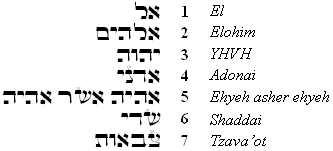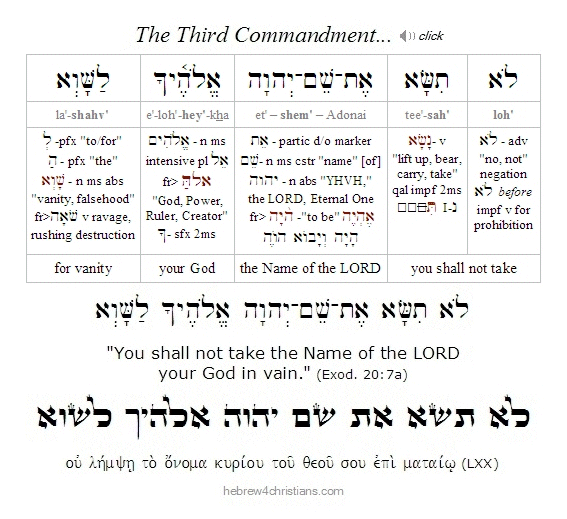|
The keyword of the second part of this pasuk is the word yenakkeh, which derives from the piel of the verb nakah (be free, declared innocent). Often this word is used in contrast with the idea of sin (avon), and can therefore be understood to mean that the LORD will not "clear" one who swears falsely by His name. There is a sort of irony in this punishment: If someone regards the LORD as "empty," so the LORD will not empty them of their guilt. In other words, this is a midah k'neged midah ("measure for measure") punishment: When someone shows contempt for God, He returns the favor.
For this reason, the sages consider the desecration of the Name of the LORD as one of the most grievous of sins, since the consequences of God's punishment extend not only to the one who shows contempt, but for others as well. The Talmud (Shabbos 33a) states that in retribution for vain oaths, God sent various catastrophes upon Israel, including violent attacks by enemies, plagues, and famine.
This commandment is repeated in the Brit Chadashah in a number of places. For example,
Yeshua the Mashiach told us:
Do not take an oath at all, either by heaven, for it is the throne of God, or by the earth, for it is his footstool, or by Jerusalem, for it is the city of the great King. And do not take an oath by your head, for you cannot make one hair white or black.
Let what you say be simply 'Yes' or 'No'; anything more than this comes from evil. (Matt. 5:34-37)
And James the Righteous said:
- But above all, my brothers, do not swear, either by heaven or by earth or by any other oath, but let your "yes" be yes and your "no" be no, so that you may not fall under condemnation. (James 5:12)
Hebrew Lesson:
Exodus 20:7a Hebrew reading:
|




